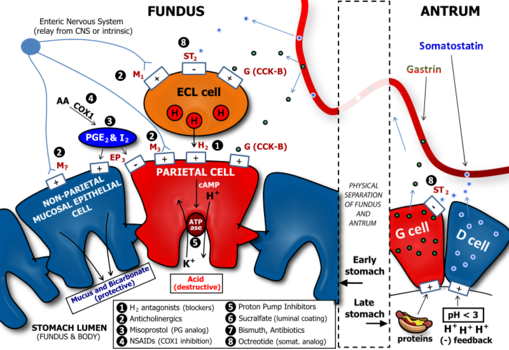Mammals and birds developed the production of acid in their stomach as a first line of defense against microorganisms in their food that could produce disease by destroying the normal population of bacteria in the animal’s gut. DeAnna Beasley, a postdoctoral researcher at North Carolina State University, and colleagues from Washington University and the University of Colorado, Boulder reached this conclusion after examining the stomach acidity of 68 different species of animals and birds including humans.
The researchers examined all available literature on stomach acidity in birds and mammals. They found that scavengers have a more acidic stomach than most other animals. The extra acid in a scavenger’s stomach protects the animal from invasive microorganisms by killing the microbes before they pass to the animal’s gut. Humans also had a much higher acid content in their stomach than most other birds or animals even though humans are mostly omnivores. The high level of acidity in the human stomach protects people from microorganisms that could cause disease. Human stomachs are more acidic than scavenger’s stomachs.
The researchers propose that the high acidity of the human stomach evolved over time and was influenced by the changes in diet than man and his ancestors underwent over the millennia that man has existed. The study raises serious questions about present diet and the use of drugs for stomach ailments. Any drug or food that harms the acid level of the stomach or imperils the bacteria that naturally thrive in the acid of the stomach could produce serious health consequences. The stomach bacteria evolved over time to prevent invasive organisms from reaching the gut and causing disease.















